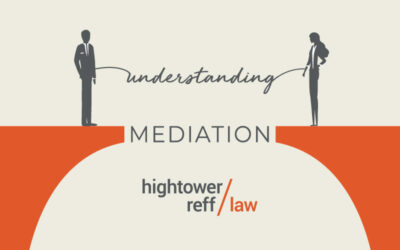 Divorce property settlement tax pitfalls can be an unpleasant post-divorce surprise. Hiding, unfortunately, won’t make the problem go away.
Divorce property settlement tax pitfalls can be an unpleasant post-divorce surprise. Hiding, unfortunately, won’t make the problem go away.
Marital property transfers to one spouse or another during or related to a divorce generally don’t bring tax consequences. However, like most generalities, there are always exceptions.
In Part I of this series, I talked about your divorce dream team. I suggested that, along with an experienced divorce lawyer like those at Hightower Reff law, a tax attorney or a CPA may be a valuable part of your divorce team. Possible divorce property settlement tax pitfalls are yet another reason to consider enlisting a tax pro during your divorce.
Divorce Property Settlement Tax Pitfall 1 – Selling the House
You must report gain or loss from the sale of jointly owned property on your taxes in the tax year of the sale. Your individual state’s law determines what your share of that gain or loss amounts to. This is another area that can get sticky, and where a tax attorney or CPA can be helpful.
If you sell your primary home when you’re no longer married, watch out. Your tax basis on the capital gain is different than it would have been when you were married. Married couples filing jointly can exclude up to $500,000 of gain from the sale, while single tax filers can only exclude half that amount, at $250,000.
When the Primary Residence Exclusion Doesn’t Count
One of the most common divorce property settlement tax pitfalls happens when a divorcing couple keeps the family home in both of their names after the divorce. It’s often so one spouse can live there with the children until they’re grown.
The spouse who no longer has the house as their primary residence often ends up with an expensive tax consequence when it’s sold years later.
[infographic id=”x1491513326133″]
IRS Publication 523, Selling Your Home, is a helpful read that includes special rules you should know if you’re separated or divorced and selling a main home.
The non-recognition rule – isn’t always recognized
Usually you don’t pay taxes on division of marital assets because of divorce. That’s because the “non recognition rule” doesn’t recognize a gain or loss on property transfer between spouses or former spouses (so long as the transfer between former spouses is because of divorce.)
However, there are some circumstances in which the IRS considers a property transfer as a gain by one spouse – which means it’s taxable.
[infographic id=”x1491513550086″]
Non-taxable transfers
Some other things you may not think of that you can transfer without tax consequences during or incident to a divorce (under definition of IRS regulations):
- Health savings account (HSA)
- Archer medical savings account (MSA)
- Individual retirement arrangement (IRA) (stay tuned for more on this)
Next in the series
Next time in the final installment of Divorce and Taxes, we’ll have a look at key points to know about retirement account division roadblocks when it comes to your tax bill.
(If you missed Part I or Part II of the series, you can catch them here.)
This article should not be construed as legal advice. Situations are different and it’s impossible to provide legal advice for every situation without knowing the individual facts.
Author, Hightower Reff Partner Attorney Tracy Hightower, holds both a Juris Doctor and a Master of Laws in Taxation. For more about Tracy, visit her profile page.
If you need help with an Omaha area divorce or other Omaha family law case, contact Hightower Reff Law today and come visit with one of the attorneys at the Omaha office.




